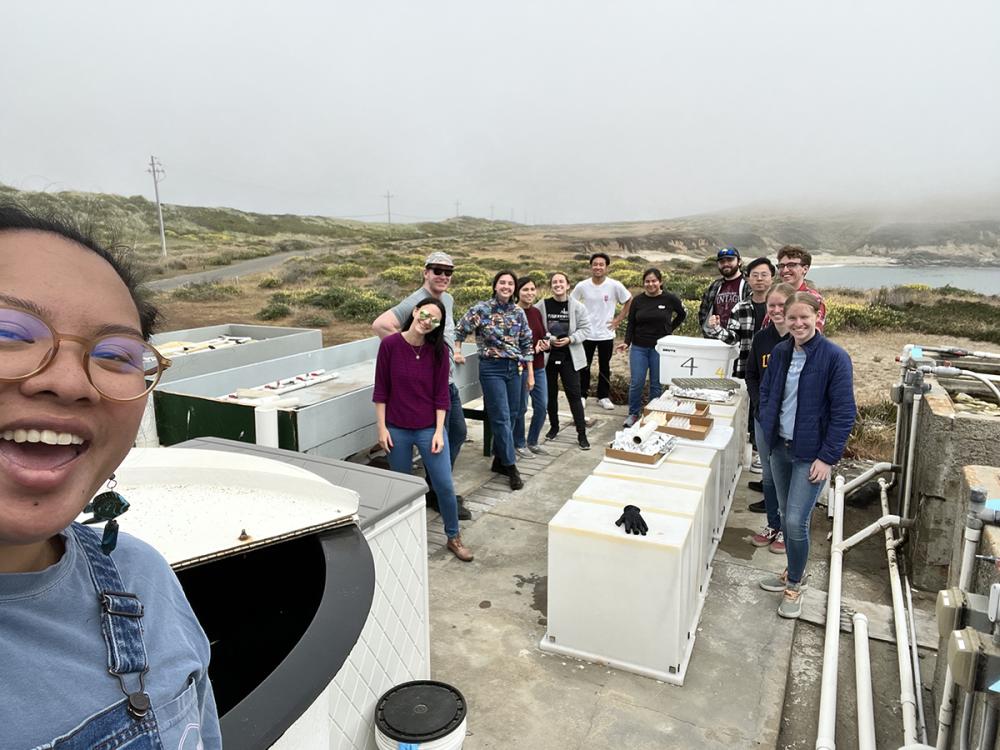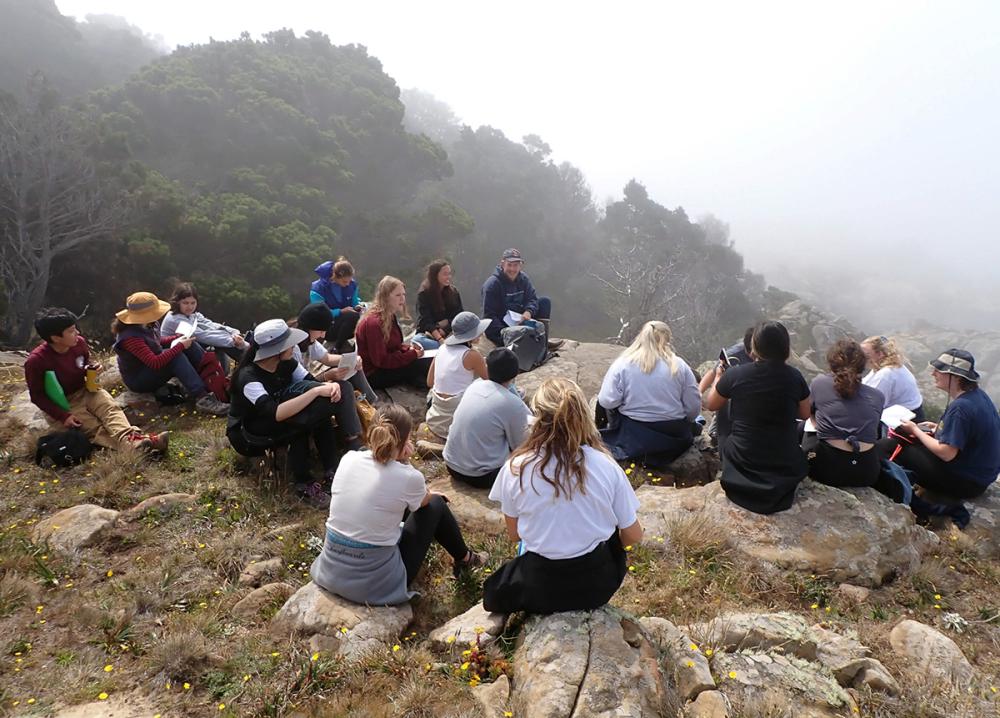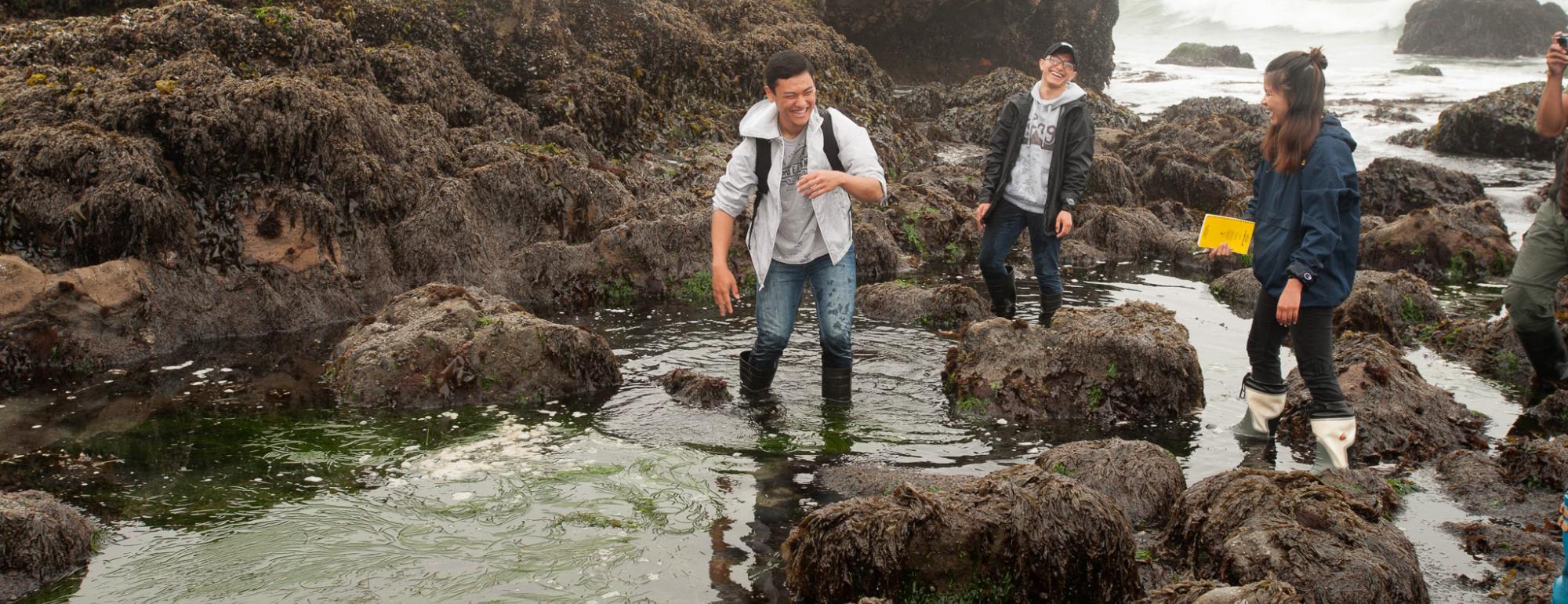Summer Session One
June 22 – July 31, 2026
- All courses are open to students from any college or university.
- Students interested in Summer Session 1 classes at BML must submit an application (applications will open in January 2026 and will be due on April 15, 2026). See more on the application and admission information page.
- Since these courses add up to 9-10 units, we encourage students to stay in on-site housing (additional fees apply for room + board at BML, see the FAQ), unless they have other accommodations within Sonoma County.
- Scholarships available for study at BML: These scholarships are competitively awarded to excellent students who are in financial need to support their studies at BML. Open to UCD and non-UC Davis students. All undergraduate students – national, international, undocumented, AB540 – are eligible to apply for scholarships.
- All of the courses have suggested prerequisites. Please refer to the UCD General Catalog for specific course recommendations. If you have not completed the prerequisites, please reach out to the course professor to discuss your readiness for the class.
- See Summer Session Frequently Asked Questions
Information Session:
We will be hosting a Zoom information session in February. You’ll learn about the classes being offered, how to apply, housing at BML, scholarships, and more. Sign up below and you’ll receive an email with more details in January.
Course Options

ETX/NUT 127
Environmental Stress and Development in Marine Organisms (10 units)
This class examines how pollutants impact the most sensitive life stages of marine organisms: their embryos and larvae. Students will gain experience in experimental aspects of reproduction and development of marine organisms and how environmental stress impacts these events. The course will include an intense lecture-lab component as well as an independent research project. ETX/NUT127 satisfies 10 units of the 24 units of Restricted Electives required for a chosen emphasis within the Environmental Toxicology major.
This class examines how pollutants impact the most sensitive life stages of marine organisms: their embryos and larvae. Students will gain experience in experimental aspects of reproduction and development of marine organisms and how environmental stress impacts these events. The course will include an intense lecture-lab component as well as an independent research project. ETX/NUT127 satisfies 10 units of the 24 units of Restricted Electives required for a chosen emphasis within the Environmental Toxicology major.

BIS 124 and EVE 114
Coastal Marine Research (6 units) and Experimental Invertebrate Biology (3 units) These two courses must be taken together, for a total of 9 units.
Want to learn more about the remarkable diversity of tidepool animals that make their home on the rugged northern California coast? Interested in gaining practical, hands-on experience while conducting your own research project? We will cover the biology, ecology, and evolution of local marine invertebrates with a focus on adaptations to environmental and biological factors encountered on the California coast. This set of integrated courses offers field trips and hands-on labs with an emphasis on testing hypotheses. Class experiments and independent research projects provide students with training and experience in all aspects of the research process including making observations, generating hypotheses, designing experiments, collecting and analyzing data, and scientific communication.
Photo by Jackie Sones
Want to learn more about the remarkable diversity of tidepool animals that make their home on the rugged northern California coast? Interested in gaining practical, hands-on experience while conducting your own research project? We will cover the biology, ecology, and evolution of local marine invertebrates with a focus on adaptations to environmental and biological factors encountered on the California coast. This set of integrated courses offers field trips and hands-on labs with an emphasis on testing hypotheses. Class experiments and independent research projects provide students with training and experience in all aspects of the research process including making observations, generating hypotheses, designing experiments, collecting and analyzing data, and scientific communication.
Photo by Jackie Sones

